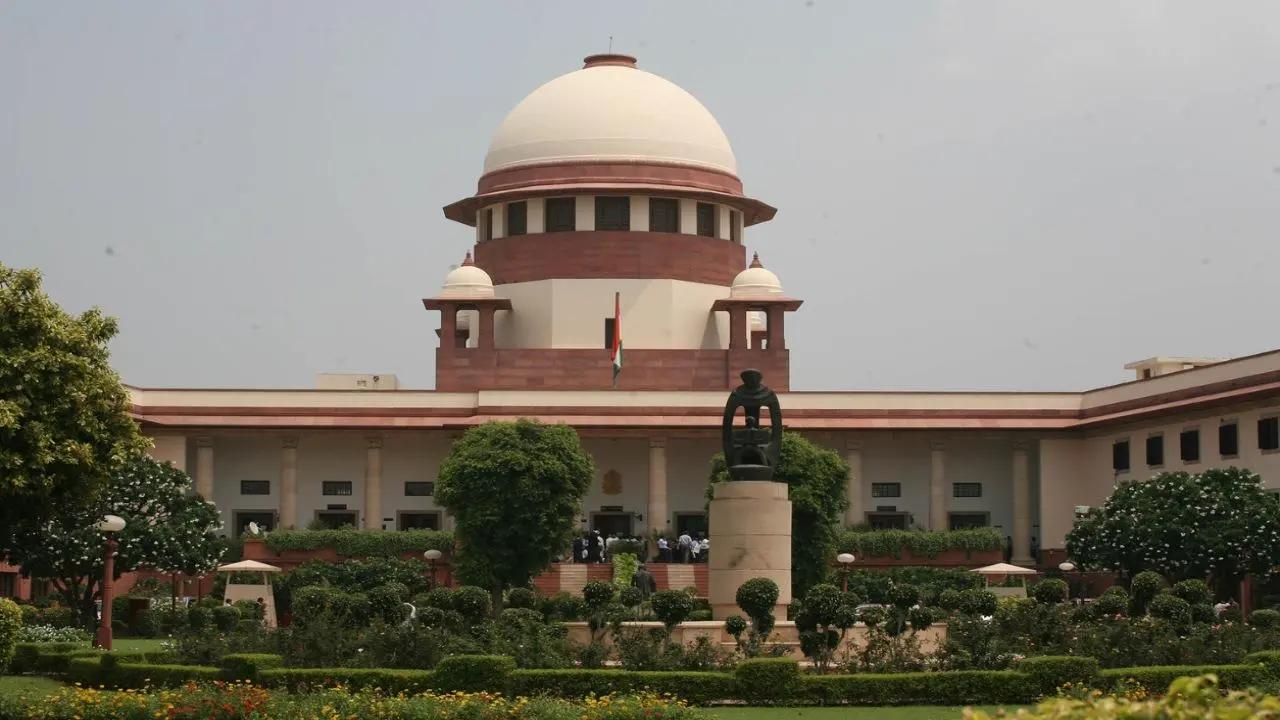The plea filed by the Bilkis Bano case convicts raised concerns about potential judicial misconduct and confusion regarding which legal precedent to follow.

Representational Picture/iStock
On Friday, the Supreme Court rejected to hear a request from two of the 11 prisoners in the Bilkis Bano case, who were challenging the January 8 ruling that invalidated their remission. A panel of Justices Sanjiv Khanna and Sanjay Kumar dismissed the plea as "absolutely misconceived" and questioned how it could sit in appeal over a decision issued by another bench of the Supreme Court, reported PTI.
"What is this plea? How is this plea maintainable? This is absolutely misconceived. How can an Article 32 petition be filed? We can't sit in appeal over an order passed by another bench," the bench said over the plea of Bilkis Bano convicts' plea per the news agency report.
According to the report, advocate Rishi Malhotra, representing convicted Radheyshaym Bhagwandas Shah and Rajubhai Babulal Soni, requested permission to withdraw the plea, which the bench granted. Shah has also sought temporary bail.
In March, both inmates petitioned the Supreme Court, claiming that the January 8 decision revoking their remission violated a 2002 constitution bench order. They sought that the matter be referred to a larger bench for final resolution. Shah and Soni, who are currently being imprisoned in the Godhra sub-jail, indicated that there were opposing viewpoints on the topic of premature release and whether state government policy applied to their remission.
Reportedly, the petition, submitted through Malhotra, stated that while one panel in May 2022 directed the Gujarat government to consider Shah's application for premature release under the state's 1992 remission policy, the January 2024 judgement determined that Maharashtra, not Gujarat, could grant remission.
The plea filed by the Bilkis Bano case convicts contended that this inconsistency could result in judicial misconduct and confusion regarding which legal precedent to follow. It suggested that if a party was displeased with a Supreme Court decision, they might appeal it under the Bilkis Bano case, stated the PTI report.
The report stated that the court further questioned whether a second bench may overturn a previous bench's decision, or whether the case should have been transferred to a larger bench for proper resolution.
The January 8 decision was a severe blow for the Gujarat administration, as the Supreme Court overturned the remission awarded to the 11 convicts in Bilkis Bano's gang rape case and the murder of her seven family members. The court chastised the state for being "complicit" with the accused and abusing its discretion, returning all prisoners to jail within two weeks, the report added.
Bilkis Bano, 21, was five months pregnant when she was gang-raped during Gujarat's sectarian violence in 2002. Her three-year-old daughter was one of the seven family members slain during the violence.
 Subscribe today by clicking the link and stay updated with the latest news!" Click here!
Subscribe today by clicking the link and stay updated with the latest news!" Click here!










